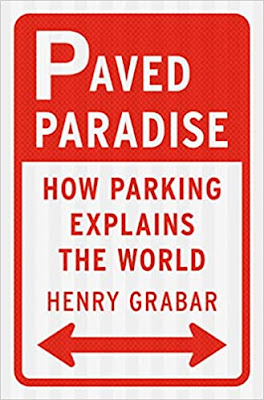The City of Richardson will be taking up the City's outdated Comprehensive Plan in this next City Council term. It will be a heavy lift. Not everyone even agrees on what the action item encompasses. Will it just be an exercise of refreshing the map that shows where in Richardson single family homes are allowed, and offices, and shops, and parks? Or does it include related things like whether homeowners are allowed to add an accessory dwelling unit (ADU) to their property? Or whether the minimum number of parking spaces buildings are required to have should be relaxed or eliminated altogether?
City government resists change. It's in their nature. I'm expecting Mayor Dubey to align with the institutional interests and narrowly draw the boundary of what's open for review. I'm hoping that there will be pushback from the new City Council to get the boundary drawn expansively. Updating the Comprehensive Plan to allow a broader mix of uses is useless if they leave in place other regulations and building codes that deter such uses. A push for broad change is bound to meet resistance. Some people are passionate about the status quo.
Why? Resistance to change runs deep. I was struck by one paragraph in a New Yorker book review ("Driven Around the Bend) about the future of cars. The paragraph that caught me up short focuses on one seeming necessity in our car-centric urban form: parking.
Conservatives see parking as liberals see health care—as a right, to be underwritten by the state. Indeed, the idea of putting a market price on parking your car is somehow viewed as outrageously confiscatory among those who would like to put a market price on everything else.Source: New Yorker.
I'm on Team Health Care. I admit that I don't understand the argument that free parking is a right. I would have thought that the conservative cry would be "Free Markets, Not Free Parking." Conservatives were up in arms over the government imposing regulations on private business over the health insurance plans they give their employees, but government imposition on private businesses is OK regarding how much parking private businesses have to provide their customers? Why is that? I see this as inconsistent, but then I'm on Team Health Care, remember? I'm trying to see the other side here, but coming up short.
I think Richardson has too much land devoted to parking cars, in part because of government mandates. I don't think America has too much health care, not when too many people are uninsured because of affordability issues. Prove me wrong.


2 comments:
In fairness, Mark, as a whole, we've been pretty open to reducing parking space requirements across the board in our decisions on council. I can't take credit for this, but in the IQ, the zoning changes reduced the parking space minimums substantially, and you'll notice that the vision for the Core really tried to condense parking into certain pockets, which will at least necessitate a short walk through the area to get where you want.
We've also been open to less parking requirements for new apartment complexes being built, especially when they are close to retail and the DART.
Thanks,
Joe Corcoran
Thanks for the feedback, Joe. It's always good to hear the sentiments of a council member. Your feedback raises my confidence that one result of this term's update of the Comprehensive Plan (and hopefully related regulations) will be to relax the parking minimums in general, so that the need to grant exceptions will be rare to non-existent.
Post a Comment